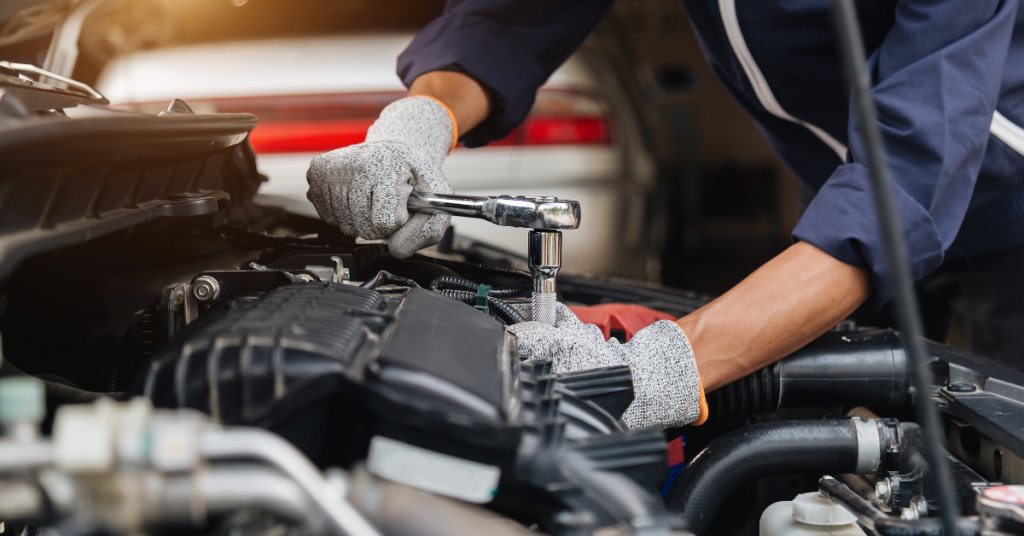
Facing a blown engine while still paying off your car finance can feel overwhelming. You’ve invested months or years into monthly repayments, only to find yourself with a vehicle that won’t run and a loan that still carries on. In South Africa, this situation calls for a clear plan. You’ll need to explore your options—from repairing the engine to sell my car with mechanical problems—and decide which route helps you close out your debt without digging a deeper hole.
Understanding Your Finance Agreement
The first step is to review your finance contract. Check the remaining balance, any penalties for early settlement, and whether you have guaranteed asset protection (GAP) cover. GAP cover can bridge the gap if insurance only pays out a market-related value that’s lower than your outstanding balance. If you don’t have cover, you may still face a shortfall even after the insurer pays for the blown engine.
Reading the fine print helps you avoid surprises. Some lenders allow you to settle the debt early with a reduced interest charge. Others apply hefty fees. Knowing exactly what you owe gives you a target figure to aim for, whether you plan to repair the vehicle or sell your damaged car.
Repairing Versus Selling
Before deciding, get a clear repair estimate from a reputable workshop. If the cost of fixing the engine is near or above the car’s current value, throwing money at repairs may not make sense. In that case, it’s often better to sell your damaged car and use the proceeds to cover part of your loan.
On the other hand, if the repair cost is modest and the car is otherwise in good shape, fixing the engine could extend its life and allow you to continue using it while you finish paying off the finance. Balancing repair costs against remaining debt helps you choose the most cost-effective path.
Finding Where to Sell a Vehicle with Engine Trouble
If selling looks like the right move, you’ll want to know where I can sell my car with mechanical problems. Several dealers and scrap yards specialise in buying non-running vehicles. They handle the towing, assess the mechanical state and make a quick offer. This way, you avoid unexpected towing fees and lengthy private sales.
Understanding Shortfall and Loan Settlement
When you sell your damaged car for cash, the sale price may not cover the finance balance in full. This leaves you with a shortfall. Lenders typically require that you settle this remaining amount immediately or in agreed installments. Failing to clear the shortfall can lead to legal action or credit record damage.
Some buyers will give you a settlement figure that includes your finance payout. They pay the lender directly and hand over any extra cash to you if the offer exceeds the balance. This streamlines the process and ensures the debt is closed without delay.
Choosing a Local Buyer
If you prefer dealing face to face, search for sell my damaged car near me to find local yards and dealers. A local sale avoids long-distance towing and lets you inspect facilities in person. It also speeds up payment, so you can settle your loan sooner.
Who Buys Non-Running Cars?
A common question is who buys non running cars near me? Companies that advertise we buy damaged cars specialise in vehicles that would otherwise head for scrap. They value parts and metal weight, making even a car with a blown engine worth something. These buyers usually arrange collection and pay quickly, turning your unusable vehicle into funds for loan settlement.
Scrapping as an Option
If your vehicle has multiple issues beyond the engine, you might choose to scrap my car. Scrap yards offer a price based on metal weight, less any non-metal parts. While scrapping often pays less than dealers focusing on used parts, it’s a simple route when repair or private sale isn’t practical.
Valuing a Non-Running Vehicle
Before you commit, ask how much a non-running car is worth. Most buyers provide a free valuation based on make, model, year and condition. They’ll factor in your engine’s failure and any additional faults. With a few valuations in hand, you can compare against your finance balance and choose the route that limits your shortfall.
Tips for Smooth Selling
When selling damaged cars, always take your service record and proof of finance. A clear history reassures buyers and lenders that you’ve maintained the vehicle well before the engine failure. If you’re unsure of paperwork, call ahead to confirm what documents a buyer needs.
Be honest about the problem. Letting buyers know you’re selling my damaged car because of a blown engine avoids wasted trips and builds trust. Transparency often speeds up negotiations and payment.
Final Thoughts
A blown engine need not leave you stranded with debt. By understanding your finance terms, comparing repair costs and exploring options to sell non-running cars, you can manage the shortfall and settle your loan. Whether you decide to trade in to sell damaged cars for cash or scrap the vehicle, taking prompt action helps protect your credit record and turns a bad situation into a practical solution. With clear research and honest communication, you’ll find the right buyer and clear your debt with confidence.